Taba Border Guide: Navigating Israel-Egypt Border Safely
HomeBlogs Taba Border Guide: Navigating Israel-Egypt Border Safely
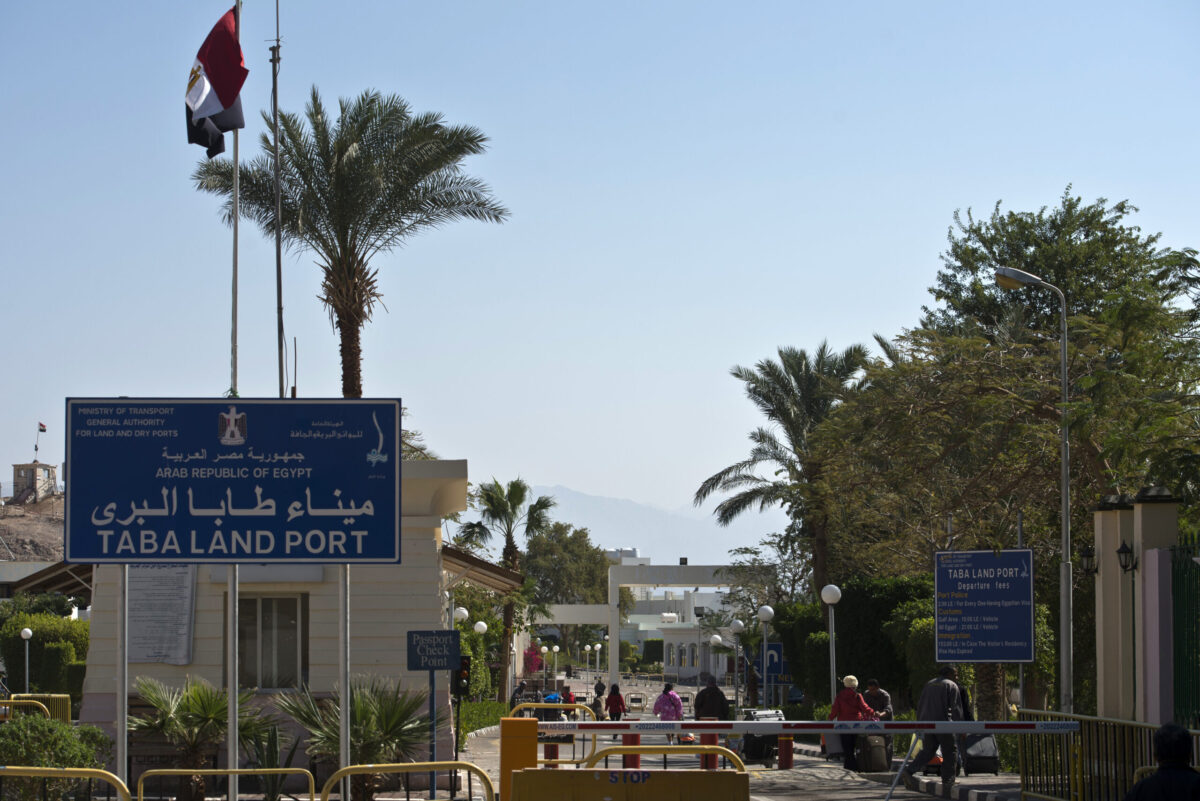
For tourists seeking to traverse the geographical and cultural landscapes bridging Israel and Egypt, the primary gateway remains the Taba border crossing. Situated in the northern region of Egypt, this checkpoint lies near Eilat, the southernmost urban gem of Israel. It stands out as the most reliable and frequently used crossing point for tourists venturing between these two historically rich nations.
In the past, travelers had the alternative of using the Nitzana border checkpoint, connecting with Abu Ujaylah in Egypt. However, the sands of time and shifts in geopolitical strategies have relegated this point to a conduit for commercial trade exclusively, closing its gates to the wanderlust of tourists.
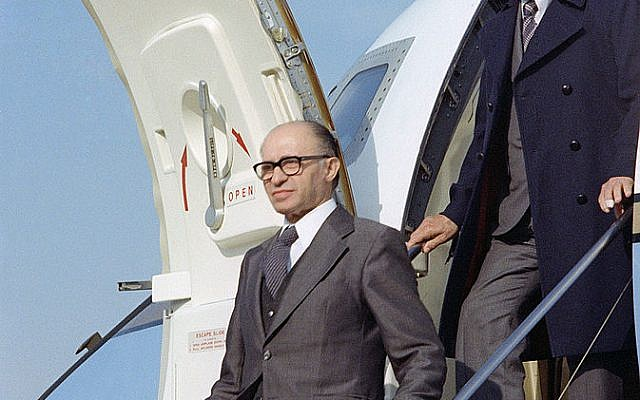
The Taba crossing, also celebrated as the Menachem Begin crossing—named in honor of Israel's sixth Prime Minister, who played a pivotal role in cementing peace between Israel and Egypt—operates around the clock. It pauses its bustling activities only during significant cultural observances: the Jewish holiday of Yom Kippur and the Islamic celebration of Eid ul-Adha. This symbolizes not just a connection of lands but a bridge between diverse cultures and histories.

The journey through Taba comes with a mandatory border fee of approximately NIS 109 (around US $30). This fee is a small token for the passage into Egypt’s embrace and is best paid in cash for convenience. While credit card payments are accepted, they attract an additional charge of NIS 6 per transaction, a small price for the added convenience.
For those with an itinerary that spans the triad of Jordan, Israel, and Egypt, Taba offers a strategic starting point. Additionally, tourists can choose from other Israel-Jordan crossings, namely the Allenby Border Crossing, the Yitzhak Rabin/Wadi Araba Border Crossing, and the Jordan River Border/Sheikh Hussein Crossing. Each of these crossings represents a unique thread in the rich tapestry of Middle Eastern geography and culture, offering travelers diverse experiences as they navigate through the history-laden landscapes of this region.
Visa Requirement to Travel to Israel from Egypt
When considering a journey to Egypt from Israel, it's crucial to familiarize yourself with the visa requirements for Egypt to determine if obtaining a travel visa beforehand is necessary.
If your travel plans are limited to visiting the Taba resorts and you can provide evidence of a hotel reservation, you might be exempt from needing a visa to make the crossing from Eilat.
A notable exemption exists for citizens of all European Union countries, the United States, and Israel, specifically through the Taba Border Crossing. These travelers can visit the Sinai Peninsula resorts, including Taba, for up to 14 days without a visa, as they are eligible for free entry permission upon arrival.
However, this visa exemption is limited to the Sinai resorts. For other international travelers heading to these resorts, and for all foreign nationals who are not exempt from requiring a visa for mainland Egypt, obtaining a visa is mandatory.
Conveniently, citizens from over 80 countries have the option to secure an Egyptian tourist visa through an online application process. This process is straightforward and time-efficient, typically requiring just a few minutes to complete. Applicants need to provide basic personal details, passport information, and travel plans. Additionally, they must answer several health and security-related questions. Upon submission of the form, an approved eVisa is sent via email.
Additionally, it's important to note that a select number of nationalities are permitted visa-free entry into Israel for tourism purposes for periods of up to 90 days. Other international visitors must apply for a visa through an Israeli consulate before their travel.
Is it Tough to Enter Egypt with an Israel Entry/Exit Stamp?
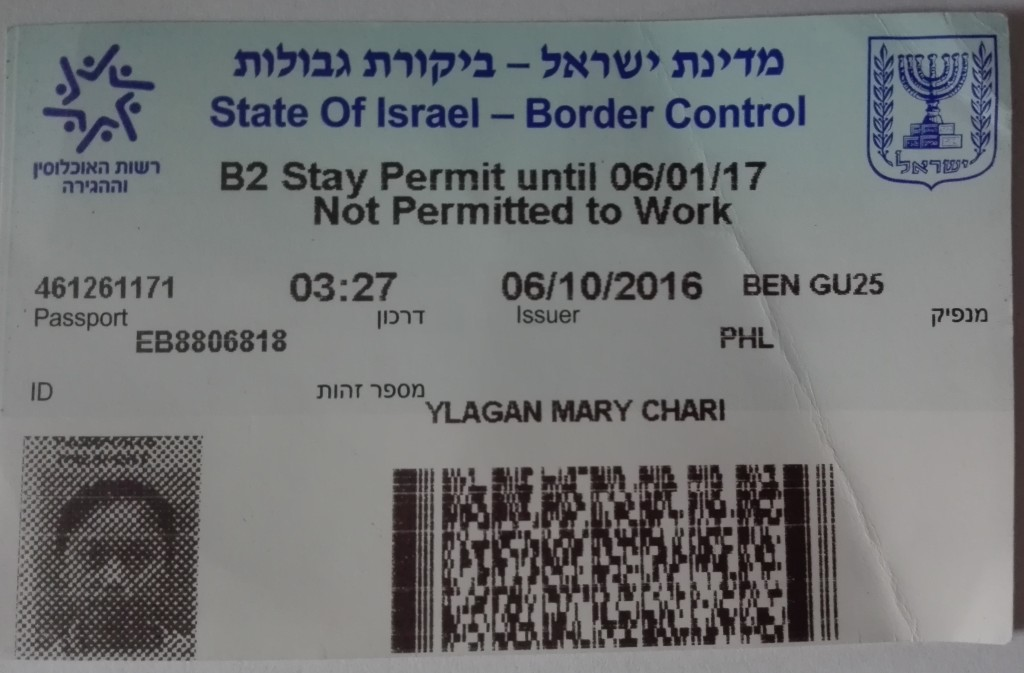
Several Arab countries have had policies restricting or denying entry to travelers with any indication of a visit to Israel in their passports. This often includes stamps signifying entry or exit from Israeli borders. However, Egypt, a nation with a rich tapestry of cultural and historical attractions, stands out as an exception to this trend.
The relationship between Egypt and Israel has undergone significant transformation and improvement in recent years. This diplomatic thaw has led to a more relaxed stance on travelers with Israeli stamps on their passports. Many Israeli citizens, taking advantage of this warm relationship, frequently visit Egypt for leisure, particularly enjoying the serene and picturesque locales of the Sinai Peninsula. Remarkably, Israelis benefit from a visa exemption policy, allowing them to stay for up to 14 days without a visa when they cross through the Taba border.
For international travelers, the common practice of Israeli border control issuing entry and exit stamps can be a source of apprehension, especially when considering future travel to other Arab nations. These countries often maintain more stringent policies regarding a history of travel to Israel. In the context of Egypt, however, such concerns are largely unfounded. The Egyptian customs and entry regulations have evolved to accommodate travelers who have previously visited Israel. Having an Israeli stamp on a passport is typically not a barrier to entry into Egypt, showcasing the country's more open and welcoming stance in comparison to some of its regional neighbors.
Despite this, travelers with itineraries that include other Arab countries after their visit to Egypt might still need to exercise caution. In such cases, it is advisable to explore options to circumvent receiving an Israeli stamp on the passport. This foresight can help in avoiding potential entry issues in countries that maintain strict no-entry policies for travelers with evidence of a visit to Israel.
Countries That Do Not Allow Entry with Israeli Stamps on Passports
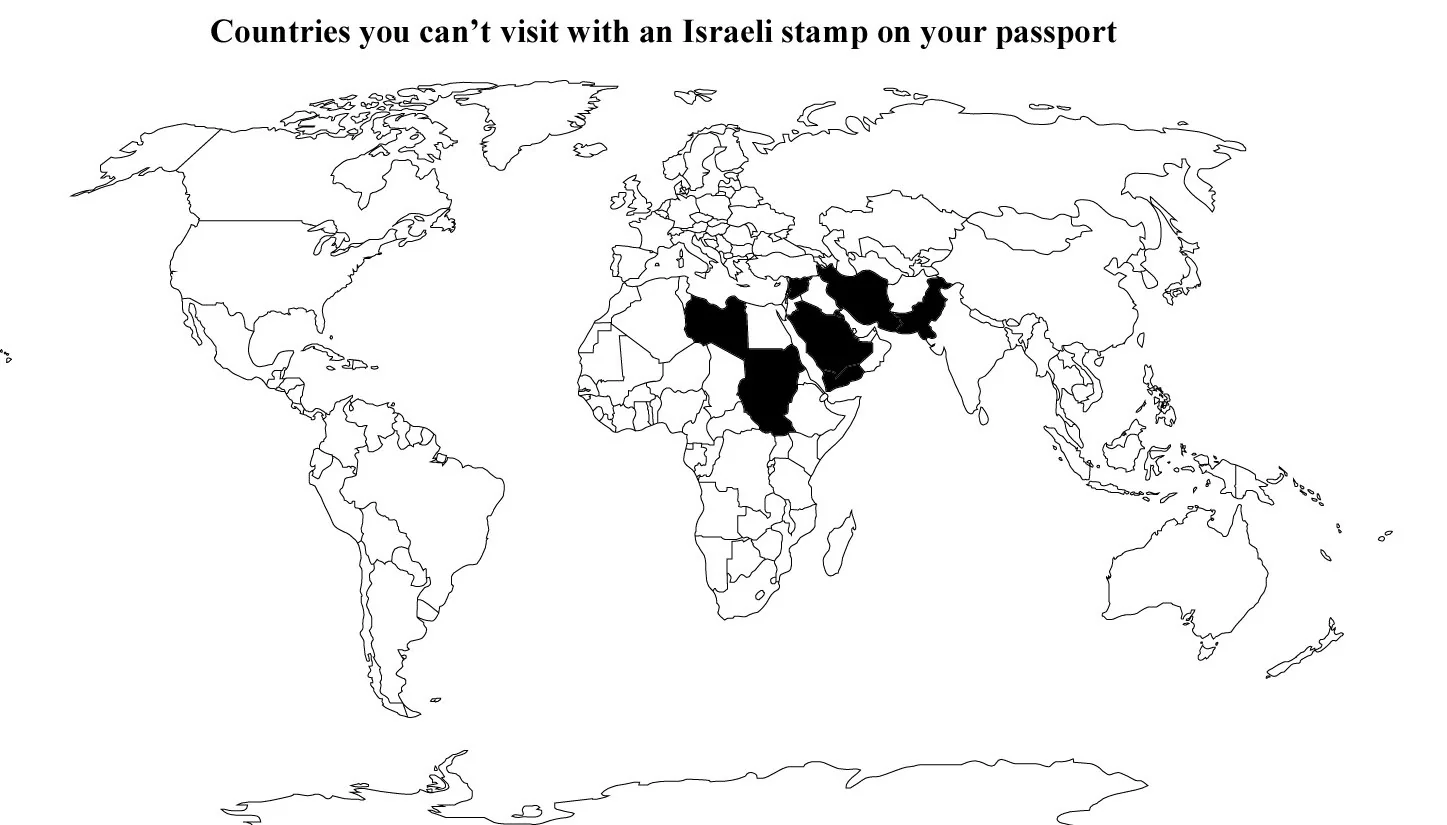
Several countries in the Middle East have stringent policies regarding travelers who have visited Israel. If your passport bears an Israeli stamp, you are likely to be denied entry into the following countries:
- Afghanistan
- Lebanon
- Libya
- Iran
- Iraq
- Kuwait
- Pakistan
- Saudi Arabia
- Sudan
- Syria
- Yemen
In these countries, immigration officials are often exceptionally thorough in their inspections. They meticulously scrutinize passports for any indication of travel to Israel. This vigilance extends beyond passport stamps; even luggage tags from Israel can be grounds for entry denial. Travelers found with any Israeli entry stamps or related evidence in their passports are typically refused entry immediately.
Countries That Allow Entry with Israeli Stamps on Passports
Several Islamic countries have also adopted a more open stance towards travelers with Israeli stamps. This list includes:
- Algeria: Known for its Mediterranean coastline and Ottoman architecture, Algeria permits entry to such travelers, showcasing a more inclusive approach to tourism and international relations.
- Bahrain: This island nation, famous for its pearl diving heritage and modern skyline, also allows entry to travelers with Israeli stamps, indicating a shift towards greater openness.
- Bangladesh: With its lush greenery and rich cultural heritage, Bangladesh's decision to allow these travelers marks a significant move in its foreign policy.
- Indonesia: the world’s largest island country, known for its volcanoes, vibrant culture, and diverse wildlife, permits entry, aligning with its goal to be a global tourism hub.
- Jordan: As a country steeped in ancient history, from the ancient city of Petra to the Dead Sea, Jordan allows entry, reflecting its peace treaty and diplomatic ties with Israel.
- Malaysia: Famous for its stunning beaches and the iconic Petronas Towers, Malaysia’s decision to allow such travelers highlights its evolving stance in international diplomacy.
- Morocco: With its rich blend of Arab, Berber, and European cultural influences, Morocco’s welcoming of travelers with Israeli stamps is part of its broader initiative to promote tourism and multicultural dialogue.
- Oman: Known for its breathtaking desert landscapes and historic forts, Oman’s policy indicates a nuanced approach to international relations.
- Qatar: As a hub for art and futuristic architecture, Qatar’s acceptance of travelers with Israeli stamps reflects its role as a progressive player in the Middle East.
- The United Arab Emirates: Famous for its modern architecture and vibrant city life, the UAE’s policy aligns with its recent normalization of relations with Israel.
- Tunisia: With its Mediterranean beaches and ancient history, Tunisia’s policy showcases its commitment to being a crossroads of cultures.
- Turkey: Straddling two continents, Turkey is known for its rich history and diverse landscapes. Its policy reflects its unique position as a bridge between the East and West.
How to Enter Israel Without a Stamp on the Passport?
When traveling through the Israeli-Egyptian border, a common concern for many travelers is the impact of Israeli stamps on their passports on future travel. Understanding this, Israeli immigration has adopted a traveler-friendly approach, offering a seamless solution for those wishing to keep their passports stamp-free.
The process is straightforward: upon arrival at the border, travelers can simply request Israeli immigration officials not to stamp their passports. This request is generally honored without issue, reflecting Israel's awareness of the international travel implications that such stamps could entail. This practice has evolved into a standard procedure, acknowledging the global nature of travel and the complexities it can involve.
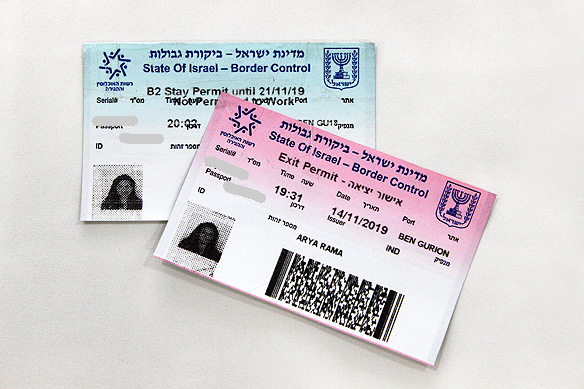
In place of the traditional passport stamp, Israeli immigration now issues two distinct slips of paper - a blue slip upon entry and a pink slip upon departure. These slips serve as official records of a traveler's entry and exit from the country. Travelers need to retain the blue slip throughout their stay in Israel. It acts as a form of identification and may be required for verification at hotels or other accommodations. Upon departure, this blue slip is then exchanged for a pink slip, marking the completion of the travel cycle within Israel's borders.
An added layer of convenience is provided to those with biometric passports. In such cases, the need for any physical stamp or paper slip is entirely circumvented. The biometric system allows immigration officials to access all necessary traveler information digitally, streamlining the process and enhancing security measures.
Some Important Details About the Taba Border
- The border operates around the clock, pausing its services only during the solemn observance of Yom Kippur. Visitors crossing from Israel will encounter a fee structure that includes 104 ILS with an additional 6 ILS surcharge, complemented by a 405 Egyptian pound fee on the Egyptian end.
- A suite of amenities awaits travelers on the Israeli side: complimentary parking, a hub for currency exchange, a duty-free shopping experience and comprehensive customs and banking services. Additionally, the Israel Automobile Club offers invaluable services such as insurance and international driver's license processing. For refreshments and relaxation, there's a cafeteria, along with the convenience of wheelchair access, vending machines, and coin-operated telephones.
- Reaching this border is a straightforward journey. Situated merely 10 kilometers south of Eilat's vibrant city center, accessibility is facilitated by the reliable services of buses, which connect all major Israeli cities. Particularly from Jerusalem, a bus is a direct route to Eilat. To ensure a seamless journey, especially on busy days like Thursdays, Fridays, or festival events, it is advisable to secure tickets online in advance.
- From Eilat, travelers have the option of boarding private buses and taxis. The latter, with fares starting under 50 ILS, offers a more personalized travel experience, with the final price often resting on one's negotiation skills.
FAQs
Do I need a visa to enter Egypt through Taba?
This depends on your nationality. Many nationalities can obtain a visa on arrival (VOA) at Taba for a 30-day stay. However, some nationalities require a pre-arranged visa. Check with the Egyptian embassy or consulate in your home country for current visa requirements.
Do I need to pay an exit tax on leaving Israel?
Yes, all travelers crossing from Israel to Egypt must pay an exit tax of approximately NIS 109. However, you are exempt from this tax if you are staying within 1km of the border zone and can provide a printed hotel reservation from a designated resort.
How long does it take to cross the Taba border?
Crossing times can vary depending on the season and workload but generally take 1-2 hours. On peak days or holidays, waiting times can be longer.
Do I need to fill out any forms?
You will need to fill out a landing card on the Egyptian side. These are usually available at the border crossing.
How do I get to the Taba border crossing?
You can take buses from Eilat or a private taxi. Alternatively, if you are arriving at Eilat Airport, some shuttle services go directly to the border crossing.
What currency should I bring?
You can pay the departure tax in shekels or euros. ATMs are available on both sides of the border. However, it's good practice to bring some cash in the local currency for emergencies.
What about luggage and baggage allowances?
There are no specific baggage allowances at the Taba border crossing. However, airlines and Egyptian regulations have baggage restrictions, so check with your carrier beforehand.
Can I take my drone across the border?
Drones are generally not allowed in Egypt. If you bring one, you may be required to leave it at the border crossing for pick-up on your return.
Is there duty-free shopping at the Taba border crossing?
Yes, there is a duty-free zone on the Egyptian side of the border where you can purchase tobacco, alcohol, and other goods.
What languages are spoken at the border crossing?
English, Hebrew, and Arabic are widely spoken by border officials.
What are the opening hours of the Taba border crossing?
The Taba border crossing is open 24 hours a day, 7 days a week, except for the Jewish holiday of Yom Kippur and the Islamic holiday of Eid ul-Adha.
What should I wear while visiting the Taba border?
Dress modestly and comfortably for the weather. Avoid offensive clothing or religious symbols.
Applying for an Egypt eTA
- Fill out the online application form with your personal details and passport information.
- Proceed to make a secure online payment using your credit card.
- Check your email for the confirmation of payment and receipt of your Egypt eTA, which will be sent electronically.

1